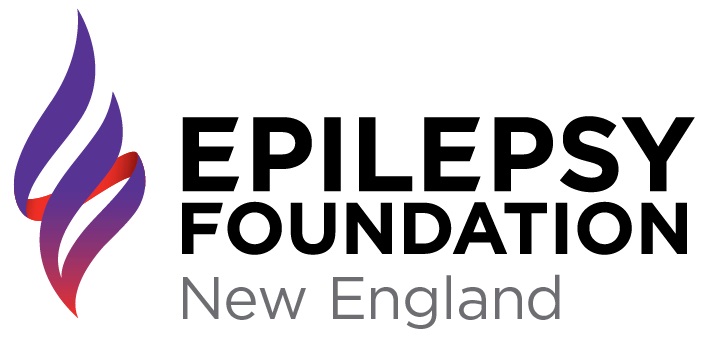Treatment
Treatment Options for Epilepsy
When it comes to treating, managing, and preventing the symptoms of epilepsy, those living with a diagnosis have a variety of treatment options to choose from - meaning you can find the treatment plan that works best for you.
Medication
Medication is the most common treatment for controlling seizures, and is (in most cases) the first trial of therapy.
Anti-epileptic drugs (AEDs) control seizures for approximately 7 out of 10 people living with epilepsy. Today there are a variety of AEDs available, and different medicines work best to target different types of epilepsy.
Your doctor will consider many factors when prescribing an AED, and some of these considerations include:
- Type of seizure
- A person’s other medical diagnoses
- Age and gender
- Potential side effects of a medication
- Interaction of the AED with other medications a person may be taking
- Pregnancy or a person’s plans to become pregnant
It is important to discuss all of your AED therapy options with your doctor. A person should not stop or change their seizure medicine without talking to their doctor, as this could cause serious complications. Side effects to medications should be reported to your doctor immediately.
Learn more about your seizure medication options.
Vagus Nerve Stimulation
Vagus nerve stimulation therapy (VNS) is a treatment designed to prevent seizures by sending regular, small pulses of electrical energy along the vagus nerve to the brain. These pulses are supplied by a device similar to a pacemaker for the heart (which is why the VNS is sometimes referred to as a pacemaker for the brain).
The VNS device is implanted by a surgeon under the skin on the chest wall. A wire runs from the device to the vagus nerve in the neck, part of the autonomic nervous system. VNS therapy can improve seizure control and quality of life for some individuals over time.
Learn more about VNS therapy.
Therapeutic Diets
The Ketogenic Diet is a special high-fat, low-carbohydrate diet that helps to control seizures in some people with epilepsy. It requires careful measurements of calories, fluids, and proteins. “Ketogenic” refers to the production of ketones in the body (keto = ketone, genic = producing), which are formed when the body uses fat for its source of energy. Usually the body uses carbohydrates for its fuel, but because the ketogenic diet is very low in carbohydrates, fats become the primary fuel instead.
The Ketogenic Diet should be prescribed by a doctor and carefully monitored by a dietitian. Doctors typically recommend the ketogenic diet for children or adults whose seizures have not responded to multiple seizure medications. Several studies have demonstrated that the ketogenic diet can reduce or prevent seizures in some children whose seizures were not well controlled on AED therapy.
Learn more about the Ketogenic Diet:
Surgery
Brain surgery is another therapeutic option for individuals who have seizures which cannot be controlled with medication or other forms of treatment. Although surgical procedures for epilepsy have been used for more than a century, the use of surgery dramatically increased in the 1980s and 90s, reflecting its effectiveness as an alternative to seizure medicines for patients with refractory seizures.
Not all patients are candidates for surgery. The benefits of surgery should be weighed carefully against its risks, and extensive testing is necessary prior to surgery. Epileptologists work together with neurosurgeons, neuropsychologists and neuroradiologists to review each individual case prior to making a decision about surgery.
Learn more about treating epilepsy with surgery.
Medical Cannabis
Medical use of cannabis - now legalized in many states, including all New England states - has provided promising early research results in treating those living with epilepsy. As a result, the FDA has recently approved the first drug comprised of an active ingredient derived from cannabis to treat rare, severe forms of epilepsy.
People living with uncontrolled seizures who have previously attempted other forms of treatment have reported beneficial effects and reduced seizure activity, especially with cannabis-derived Cannabidiol (CBD) oil.
However, individuals should be cautious in arriving at an informed treatment decision and discuss this treatment option with their neurologist/epileptologist.
Learn more about treating epilepsy with medical cannabis.
Responsive Neurostimulation (RNS®)
Responsive Neurostimulation (RNS®) is a newer approach to treating medically uncontrolled partial onset seizures, and is the first device to provide responsive neurostimulation, automatically monitoring brain signals and providing stimulation to abnormal electrical brain events just when it is needed. The system is approved by FDA as an adjunctive treatment for adults with medically refractory partial seizures that come from one or two seizure targets identified by your doctor.
The RNS® neurostimulator is placed under the scalp and within the skull by a neurosurgeon. One or two leads are then placed at the seizure target and connected to the neurostimulator. Once the scalp heals, the neurostimulator should not be noticeable to others.
The neurostimulator continuously monitors the brain’s activity and is programmed by the epilepsy doctor to detect and record specific patterns that could lead to a seizure. When these patterns are detected, the neurostimulator responds with brief pulses of stimulation intended to disrupt the abnormal brain activity before a seizure occurs.
Detection and stimulation settings are individualized for each patient’s patterns and so that stimulation is not felt. In addition, each patient gets a take-home monitor so that brain activity data can be sent to the epilepsy doctor between office visits.
The RNS® System is manufactured by NeuroPace, Inc.
Additional information:
NAYZILAM® (NAY-zil-am) (midazolam) nasal spray, CIV
Watch the UCB Nasal Rescue Spray product video. For Medication Guide: http://alturl.com/28gxi
NAYZILAM® is Manufactured by UCB, Inc.

The Epilepsy Foundation New England is here to serve and assist the epilepsy community. We partner with the Epilepsy Foundation of America to provide access to information, resources, and support for our constituents.
